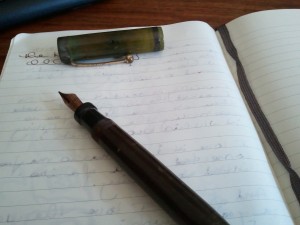
Warning: the following material may confuse you, or even make your head hurt. Because who knew it was sooo hard to effect change??
Teachers, that’s who. Especially teachers of young adults. Because when you’re little, learning is still FUN. There are cool toys that teach: blocks, puzzles, word games. And there are crayons, scissors, and little books. It’s all a kind of game.
And then testing and GRADES enter the picture. It’s obvious to students that we care far less about learning than grades. At least teachers — and students, and sometimes parents — know this.
But this isn’t a discussion of how misguided standardised testing is. I wish such a conversation would change policy, but I’ve had similar wishes and they don’t come true. There’s far too many $$ at stake (and yes, I’m that cynical…just follow the money, and you will be too).
Instead, I’d like us to look at a new study. One that examines how minds change. And the bad news: most of the time, they don’t.
We seem to have forgotten that the expression
“a liberal education” originally meant
among the Roman one worthy of free men.
~ Henry David Thoreau
Brendan Nyhan, a professor of political science at Dartmouth who conducted the study, is automatically suspect to many neo-cons. I’ve talked recently about why so many neo-cons are anti-university, but suffice to say that a good education should include critical thinking. And if you think critically, you will eventually question all assumptions — including religious beliefs. Note: I know MANY academics who believe in various wisdom traditions, ranging from conservative Christianity to Islam to Hinduism to Buddhism to Unitarianism to Wicca. And more. Belief needn’t be antithetical to critical thinking.
Here’s what Nyhan’s study found, basically: people don’t change their opinions on things because of facts. Almost ever. Wow. How depressing is THAT??
Wow. How depressing is THAT??
So what — if anything — can help us bridge the intolerable chasm of hate & distrust that divides the country these days? I’ll give you one guess:
Writing. Teaching writing. NOT to the test, folks, but to the future. Teaching for change, despite what a certain highly unpleasant radio talk show host says.
If we ask students to affirm their own self-worth, they don’t cavil so at evidence that counters beliefs. It’s only, in other words, when we feel our own selves threatened that we refuse to see reason.
I know this from my own teaching. Offering students readings, and then asking them to write, is one thing. Offer writing that’s fun, that affirms their value as people, then let’s discuss readings that may not go along with what you think you already know.

Take Columbus (please). First slave-taker in the Americas, genocidist, and very bad man. Seriously. Lots of discussion at the time — this isn’t re-making history. But folks don’t like that reading. I was once roundly chastised by a teacher in a workshop for clarifying the ‘history’ of Columbus. He was a hero! my colleague insisted. Weeellll, not so much.
No ‘facts’ I could give her would change her opinion. At least not then. But because she was a very good teacher, and a seed of doubt had been planted (and because I let it go: it wasn’t important to me that she ‘convert,’ but that she possibly listen), she eventually researched this history on her own. And changed her mind.
 Note: I don’t think that I changed her mind. But I didn’t make it up for her, either: I didn’t challenge her, call her dumb, or anything. I just let it go. (True confessions time: I can’t always be that smart or dispassionate, unfortunately!) So she didn’t have any of her own self tied up w/ the information/ facts/ decision to update what she had been taught.
Note: I don’t think that I changed her mind. But I didn’t make it up for her, either: I didn’t challenge her, call her dumb, or anything. I just let it go. (True confessions time: I can’t always be that smart or dispassionate, unfortunately!) So she didn’t have any of her own self tied up w/ the information/ facts/ decision to update what she had been taught.
That’s what writing and good teaching can do, y’all. CHANGE MINDS. If we let students write, explore their own self-value and values, we can teach them love, compassion, and all the various necessary components for a peaceful world.
And right now? We seriously need to work on that.

